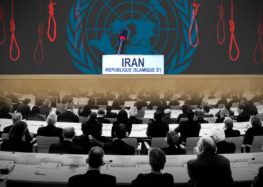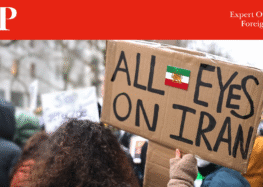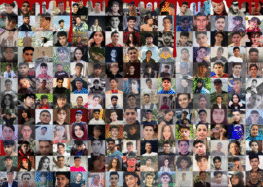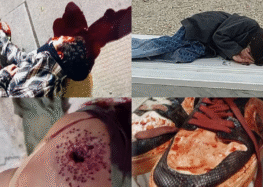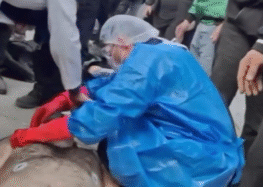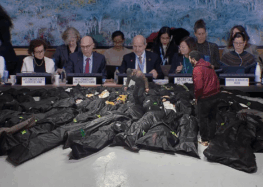Mohammad Ghaznavian Re-Arrested After Bail Increased
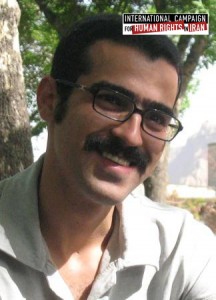 Mohammad Ghaznavian, a children’s and women’s rights activist, has been arrested again. He was first arrested on 8 February 2010, in Qazvin and released on $20,000 bail on 20 February 2010. When he and his attorney appeared at the Revolutionary Court in Qazvin yesterday to follow up on his case, he was informed of a new charge and an increased bail of $100,000, and was arrested because of his inability to post the new bail. He has been transferred to Qazvin’s Choobindar Prison. Mahnaz Parakand, Mohammad Ghaznavian’s attorney, described her client’s case to the International Campaign for Human Rights in Iran.
Mohammad Ghaznavian, a children’s and women’s rights activist, has been arrested again. He was first arrested on 8 February 2010, in Qazvin and released on $20,000 bail on 20 February 2010. When he and his attorney appeared at the Revolutionary Court in Qazvin yesterday to follow up on his case, he was informed of a new charge and an increased bail of $100,000, and was arrested because of his inability to post the new bail. He has been transferred to Qazvin’s Choobindar Prison. Mahnaz Parakand, Mohammad Ghaznavian’s attorney, described her client’s case to the International Campaign for Human Rights in Iran.
Campaign: On what grounds was Mohammad Ghaznavian re-arrested?
Mahnaz Parakand: My client appeared at the Revolutionary Court in Qazvin on 4 April 2010, to follow up on his case. Court authorities realized then that his last defense had not been made, so they informed him. They told him there was a new charge of “propagation against the regime,” and documented his accusations. When Ghaznavian requested that his attorney review the case, he was told that his attorney was allowed to read the case and write the final defense bill. On 6 April 2010, I went to the Revolutionary Court in Qazvin with my client. I presented my legal representation documents and asked to review the case so that a defense could be made. Unfortunately, I was not allowed to review the case. I was told that the charge was “propagation activities against the regime,” and that the propagation was ‘in favor of regime opposition groups’.” It appeared that both components of Article 500 of Islamic Penal Code were mentioned in my client’s charge. Unfortunately, after half an hour the branch head summoned my client and informed him of the new charge of “relations with and membership in the Mujahedin-e-Khalgh (MKO) Group.”
What reasons did they present for this new charge?
The reasons were general and in effect nothing specific was presented. My client’s final defense was received, and because of new charges against him, the bail was raised. He was told he had to pay the difference of $80,000 right then. My client did not have the financial means for posting this bail, so he was arrested and transferred to prison.
How would this increased bail affect the case, and what were the legal documents used for the new bail amount?
From a legal point of view, if new charges are added to a case, the bail amount may be increased. But there are several different ways bail could be posted. Article 134 of Penal Code has outlined several points which must be taken into consideration for posting bail. For example, depending on the type of crime and the severity of the sentence, the evidence supporting the charges, the probability of a suspect’s flight, the probability of destruction of crime evidence, and the suspect’s prior criminal records must be taken into consideration. Unfortunately, so far as I was allowed to be present in court, there were no reasons for the charges and none were stated. Also, there was no evidence. The probability of the suspect’s flight was non-existent, also, as my client had himself appeared at court. There was no probability of destruction of crime evidence, as the suspect had been arrested, investigated, and released on bail earlier. There was nothing unique about the case which may have been destroyed by the suspect. Mr. Ghaznavian has had no prior criminal record, but none of these factors were taken into consideration. Increasing the bail in his case did not have any legal basis.
Campaign: Will your client remain in detention until his bail is posted?
Mahnaz Parakand: Yes. So long as his set bail has not been posted, he will have to remain in prison.
Background:
On February 8, 2010, after Mohammad Ghaznavian’s arrest, security forces stormed his home and confiscated his personal items. The 27-year-old children and women’s rights activist is a journalist who writes about thought and society. He holds a degree in political science and lives in Qazvin. He has published multiple articles and features on the subjects of human rights, women, and children in many newspapers and internet Web sites. He also worked as office manager at Center for Development of Street and Working Children in Qazvin and had a very active role in the creation and operation of this center in Qazvin’s Hadiabad neighborhood.

